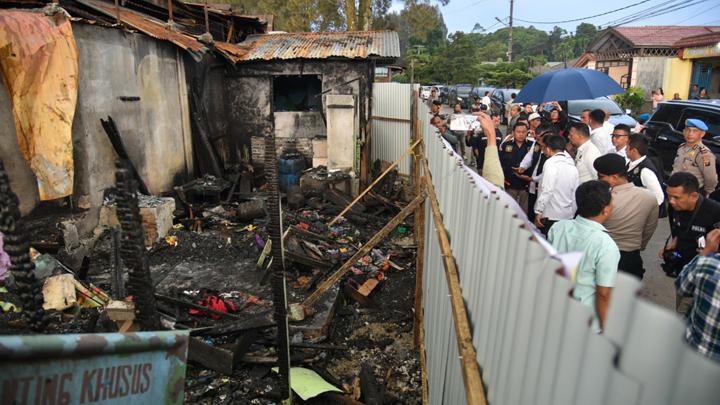Broadcasting Bill Draft Bans Exclusive Investigative Journalism Content, Journalists Calls Out Attempt to Silence the Press
Translator
Editor
11 May 2024 17:34 WIB

TEMPO.CO, Jakarta - The Independent Journalists Alliance (AJI) has brought attention to several articles deemed problematic in the draft Broadcasting Bill prepared by the House of Representatives (DPR). AJI Secretary General, Bayu Wardhana, has urged the DPR to remove problematic articles from the Broadcasting Bill.
One of the articles considered problematic is Article 56 Paragraph (2) sub-paragraph c. This article regulates the prohibition of media from broadcasting exclusive investigative journalism content. Bayu stated that this article is clearly confusing. "This is a very clear attempt to silence the press," said Bayu when contacted on Saturday, May 11, 2024.
Bayu continued that the DPR should make Law No. 40 of 1999 concerning the Press the main reference in drafting articles regulating broadcasting of journalistic works. However, the considerations in the draft Broadcasting Bill did not mention the Press Law at all.
Therefore, this article should be removed because there is no clear basis for the DPR to prohibit media from broadcasting exclusive investigative journalism content. "If left unchecked, this hampers press freedom. AJI rejects the Broadcasting Bill," said Bayu.
In addition to Article 56 Paragraph (2) sub-paragraph c, AJI also highlighted Article 25 Paragraph (1) sub-paragraph q, which regulates journalistic dispute resolution. According to Bayu, the overlapping authority in resolving journalistic disputes between the Indonesian Broadcasting Commission (KPI) and the Press Council in this article is irrelevant.
Because, until now, cases of journalistic disputes in broadcasting have always been handled by the Press Council. Bayu stated that the Broadcasting Bill draft seems to aim to take over the authority of the Press Council and will complicate journalistic disputes. "This is problematic and should be rejected," he said.
Separately contacted, Executive Director of the Institute for Media Studies and Monitoring Remotivi, Yovantra Arief, stated that the Broadcasting Bill threatens creativity in the digital space. Because, the draft attempts to make digital content comply with the same rules as conventional television rules. However, the medium and technology between the two platforms are clearly different. "So it's not appropriate," said Yovantra.
Remotivi, he said, also requested that Article 56, which regulates the suitability of broadcast content, be removed. Because, the prohibitions contained in this article have the potential to restrict the public's right to access exclusive and diverse content. "The public has the right to access exclusive content without restrictions," he said.
The draft Broadcasting Bill obtained by Tempo contains 14 chapters with a total of 149 articles. The DPR's Commission I, which is the DPR's internal body discussing the Broadcasting Bill, aims to complete the discussion as soon as possible.
Commission I member, Dave Akbarshah Fikarno Laksono, stated that the regulations listed in the articles of the draft Broadcasting Bill are important to prevent the nation from being exposed to negative content. According to him, the content of digital streaming media services that are rampant today often contains content that does not adhere to the values embraced by the Indonesian nation.
Therefore, regulations regarding broadcast content must be enforced. Because, until now, this content has proliferated due to the absence of regulations. "Because actually, this is important, the government must have sovereignty authority over things like this for the nation," said Dave.
ANDI ADAM FATURAHMAN
Click here to get the latest news updates from Tempo on Google News























